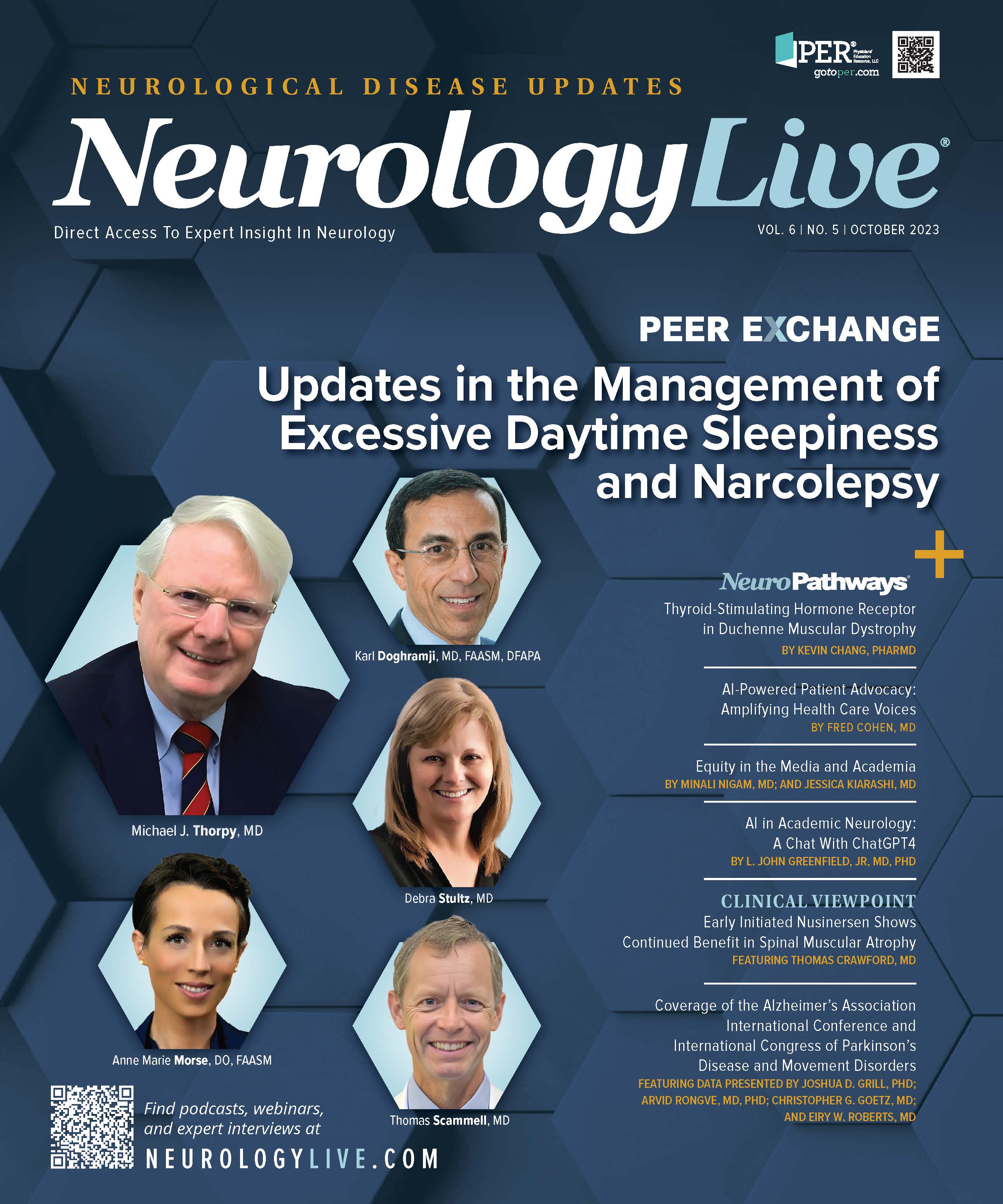Understanding Optimal Time to Initiate Anticoagulation: The START Trial
START will assess the potential of delaying non–vitamin K oral anticoagulant therapy following stroke related to atrial fibrillation in a large cohort of patients
Steven Warach, MD, PhD

AN ESTIMATED 15% OF ALL STROKES are associated with untreated atrial fibrillation (AF). Anticoagulation with direct oral anticoagulants (DOACs) soon after acute ischemic stroke or transient ischemic attack related to nonvalvular AF has been linked to a decreased risk of poor clinical outcomes compared with warfarin in practical clinical settings; however, the optimal timing for initiating DOACs after ischemic stroke has remained unclear.1
European Heart Rhythm Association guidelines, created by an expert panel, promote a 1-, 3-, 6-, or 12-day approach, with anticoagulation started after 1 day in patients with a transient ischemic attack, after 3 days in those with small strokes, after 6 days in patients with moderate strokes, and after approximately 2 weeks in those with large arterial distribution strokes. Guidelines from the American Heart Association are broader and different, with recommendations that suggest starting anticoagulation 4 to 14 days after ischemic stroke.2
Initiated in 2017, the phase 3 START trial (NCT03021928) is a multicenter, randomized, pragmatic, adaptive trial that aims to determine whether there is an optimal delay time to initiate a non–vitamin K oral anticoagulant following AF-related stroke. The study includes 1500 individuals, split between a mild to moderate stroke cohort (n = 1000) and severe stroke cohort (n = 500), who are assessed on the primary outcome of composite occurrence of an ischemic or hemorrhagic event within 30 days of the index stroke (TABLE).
The trial is led by Steven Warach, MD, PhD, a professor in the Department of Neurology at The University of Texas at Austin Dell Medical School. Patients will be randomly assigned to 1 of 4 arms at the time to start anticoagulation. The 4 arms for mild to moderate stroke include days 3, 6, 10, and 14, whereas the time intervals for severe stroke are days 6, 10, 14, and 21. The allocation process will use response-adaptive randomization by interim analyses to support the trial arms with better risk-benefit profiles.

The study, expected to be completed in December 2023, will also evaluate several other secondary outcomes that will be collected through phone calls at 30 and 90 days from the initial stroke. All-cause mortality at 30 days and event severity will also be considered as secondary outcomes for testing and data safety monitoring. A recently introduced approach to utility weighting of clinical events based on the modified Rankin Scale will be included to integrate the composite event rates with their impact on disability.
In the original published outline of the study, investigators wrote, “By not deviating from standard medical practice except for the randomization of the time to start, the pragmatic design will offer results that can directly advise clinical practice. Incorporating acquired data into the RAR [retinoic acid receptor] mechanism also offers multiple ethical benefits, including reducing the number of patients treated with ineffective or inferior treatment timing within the trial.”3
At the end of the trial, the posterior distribution of the probability that any study arm is the maximally effective arm with regard to the composite outcome will be calculated. If the posterior probability is found to be greater than 0.85 for any arm, that arm will be selected as statistically the best. Alternatively, if the probability is found to be less than 0.01 for any arm, it will be determined as statistically inferior to the other arms.
In the study, a third-party physician who is actively engaged in stroke care and licensed to practice medicine and is not a part of the research team is used to monitor safety and patients throughout. This medical monitor is blinded to the randomized and actual time-to-treatment intervals.
Several observational studies have examined the risks of adverse events following variable initiation of DOACs, with results suggesting that earlier initiation is associated with increased frequency of recurrent ischemic stroke. A recently published trial in the New England Journal of Medicine showed that the incidence of recurrent ischemic stroke, systemic embolism, major extracranial bleeding, symptomatic intracranial hemorrhage, or vascular death at 30 days was estimated to range from 2.8 percentage points lower to 0.5 percentage points higher with early than with later use of DOACs.4
That trial featured 2013 participants, 1006 of which were assigned to early anticoagulation and 1007 to later anticoagulation. A primary outcome event occurred in 29 participants (2.9%) in the early treatment group and 41 participants (4.1%) in the later treatment group (risk difference, –1.18 percentage points; 95% CI, –2.84 to 0.47) by 30 days.
REFERENCES
1. Masotti L, Grifoni E, Dei A, et al. Direct oral anticoagulants in the early phase of nonvalvular atrial fibrillation–related acute ischemic stroke: focus on real life studies. J Thromb Thrombolysis. 2019;47(2):292-300. doi:10.1007/s11239-018-1775-2
2. Powers WJ, Rabinstein AA, Ackerson T, et al. Guidelines for the early management of patients with acute ischemic stroke: 2019 update to the 2018 guidelines for the early management of acute ischemic stroke: a guideline for healthcare professionals from the American Heart Association/American Stroke Association. Stroke. 2019;50(12):e344-e418. doi:10.1161/STR.0000000000000211
3. King BT, Lawrence PD, Milling TJ, Warach SJ. Optimal delay time to initiate anticoagulation after ischemic stroke in atrial fibrillation (START): methodology of a pragmatic, response-adaptive, prospective randomized clinical trial. Int J Stroke. 2019;14(9):977-982. doi:10.1177/1747493019870651
4. Fischer U, Koga M, Strbian D, et al; ELAN Investigators. Early versus later anticoagulation for stroke with atrial fibrillation. N Engl J Med. 2023;388(26):2411-2421. doi:10.1056/NEJMoa2303048
